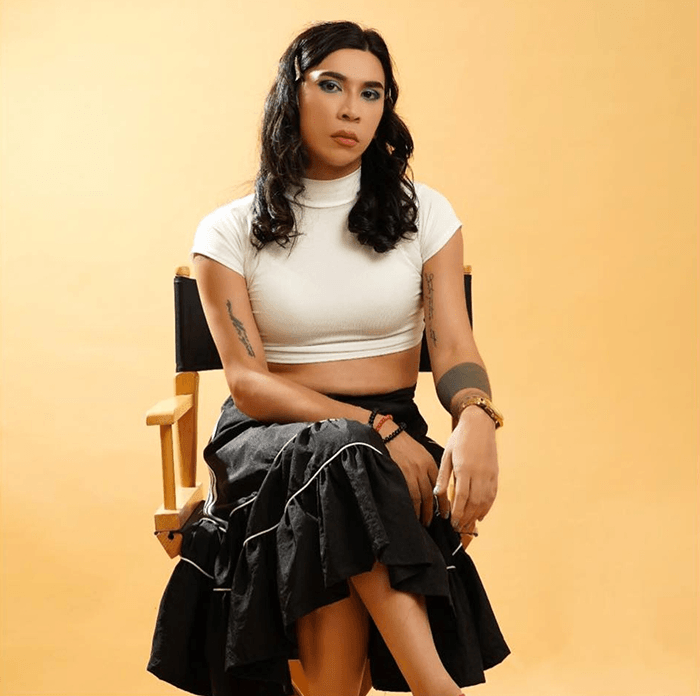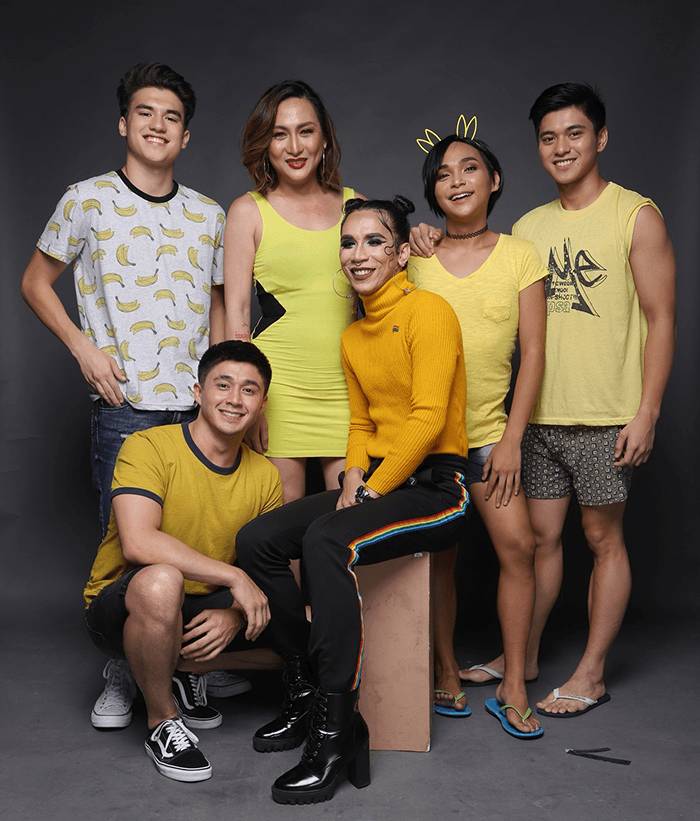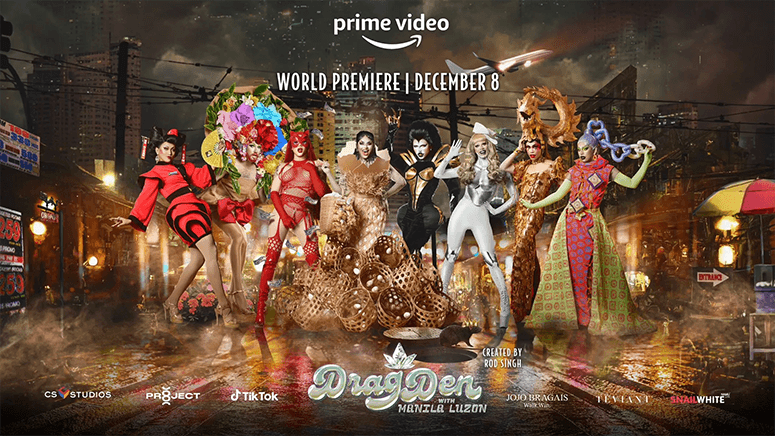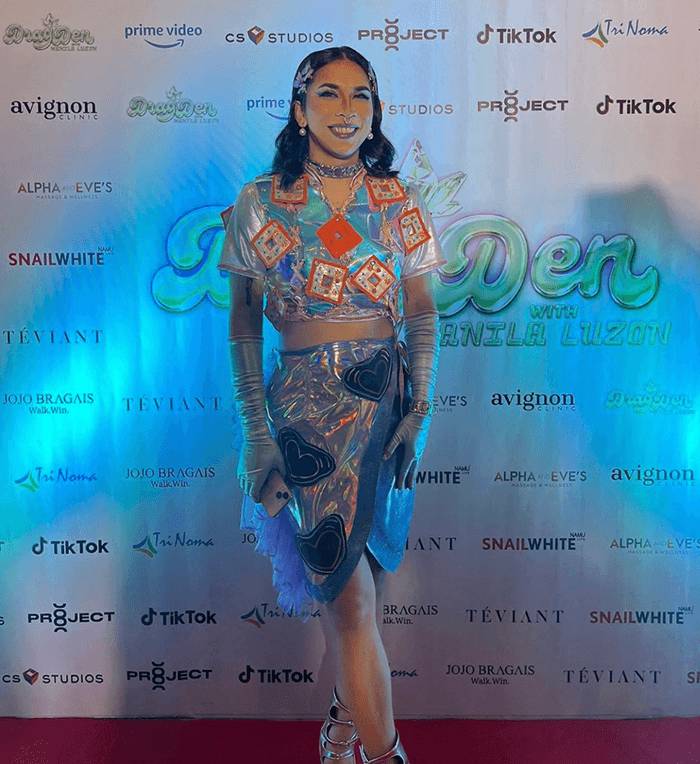The truth about queer storytelling with director Rod Singh
Pioneering change comes with pushback. For minority groups like the queer community, these often turn hostile. It’s no wonder that Drag Den Philippines creator, director, and writer Rod Singh refers to queer storytelling as “throwing the first punch.”
It’s a bit ironic to metaphorize queer narratives as a balled fist, especially considering how members of the LGBTQ+ community have been at the receiving end of this specific violence; but it’s also fitting. Singh’s films and shows are a jab at the status quo and its limiting perspective on queer identities, specifically transness.
“Inisip ko before na baka kaya mababa rin ang mga pangarap ko sa buhay was because ito lang din yung akala kong pwedeng mangyari sa mga trans o mga bading,” she told The Philippine STAR, explaining how she internalized one-dimensional characterizations of onscreen queer people.

For her, the prejudiced tropes that films held onto for years were tools of oppression that hampered queer people from achieving their fullest potential. However, it is also through films that Singh found her power. “You get to inspire people to dream more and be more.”
This power was compellingly harnessed in her first full-length film Mamu: And a Mother Too. The titular Mamu, played by Iyah Mina, who historically won as Best Actress for this role, is a sex worker in her late 40s who had to stand as a mother for her recently orphaned niece, Bona, played by EJ Jallorina.
Having been her debut film—and the first that got produced after three consecutive years of submitting scripts to grant-giving bodies like Cinema One Originals—she did not pull her punches in making the film. Mamu: And a Mother Too tells the stories of fully realized trans and queer characters that were conventionally relegated to the periphery of our screens. Singh placed them front and center, but she was careful not to glamorize their struggles like poverty and prostitution.

Projected through her lens, Mamu and Bona had aspirations outside of the archetypal boy problems while remaining desirable and lovable to their leading men—a portrayal that shouldn’t be revolutionary, but is. Equally revolutionary and subversive, if not more, is how Singh portrayed motherhood outside of the heteronormative outlook of a straight man’s world.
Although culturally visible, queer characters are rarely depicted positively (as a romantic partner or a parent) and some people dismiss Singh’s films and shows as “living in a fantasy.” To an extent, she agrees, but she also believes that living happily as a queer person doesn’t have to be restricted in her cinematic universe. “Let’s turn our fantasies into our ideals,” she urged.
Inevitably, being a trans filmmaker in a conservative country, she has to roll with the punches. Though her womanhood has not hindered her significantly as a director, devoting her creative energies to creating queer-themed stories has been difficult because they aren’t lucrative enough for the film industry. She’s talked in the past about the struggles of finding platforms and financial support for her shows.
“(Queer stories are spaces) na hindi masyadong in-e-explore ng mga tao kasi they think it lacks opportunity,” she said.
“Ang dali-dali sabihing we want queer people to be seen, pero in what way? Is it your lens or (our) lens? It has to always be (our) lens. Dapat ang projection ng representation natin is how we want to be seen, hindi kung paano nila tayo gustong makita.”
Amidst but also because of these hurdles, she is deliberate in the messages that she sends through her films. She’s meticulous with what her audiences will feel and think. For this reason, even though she’s telling stories of queer people, she’s hesitant about mainstreaming its culture, such as drag. “I don’t know if mainstreaming should be the case, because with mainstreaming comes compromise.”
For her, creating shows like Drag Den Philippines is merely opening the window and inviting people to watch. It’s introducing queer stories but refusing to minimize them to appease heterosexual (usually male) sensibilities.

“Ang dali-dali sabihing we want queer people to be seen, pero in what way? Is it your lens or (our) lens? It has to always be (our) lens. Dapat ang projection ng representation natin is how we want to be seen, hindi kung paano nila tayo gustong makita,” she told us.
In Singh’s cinematic universe, however, queer people aren’t represented without flaws. They are as fallible as any of her non-queer characters, but she affords them grace and compassion. After all, a large part of our individual values is a product of our existing system. Instead of scrutinizing and penalizing a queer person for being a sex worker, she examines the material conditions, such as poverty, hunger, and lack of opportunities, that force people to commodify their bodies.
“Dapat tayo ang gumagawa ng kwento natin. Dapat tayo ang bida sa sarili nating palabas.”
In her storytelling, Singh captures nuances in queer stories that storytellers who aren’t immersed in the community may overlook or fail to emulate. She understands that the politics surrounding queerness is inseparable in storytelling, especially since a queer person happily and freely existing is already a political statement.
That’s why it’s essential for queer people to seize control of the bout in telling their stories. “Dapat tayo ang gumagawa ng kwento natin. Dapat tayo ang bida sa sarili nating palabas,” she said.

Beyond reclaiming our narratives and taking back our power, it’s also a way of changing our future. “I could’ve been a different person if na-expose ako sa isang empowering queer material growing up—a material na nakikita ko ang sarili ko, just like me pero hindi ako subject of ridicule,” she reflected.
Years of reductive representation necessitate the queer community to share their stories, from the sublime to the ridiculous. Films affect the way we see ourselves and make sense of the world. Even though Singh feels alone at times in telling queer stories, she has no plans of stopping. Through her craft, she wants to raise the threshold and teach queer people to dream beyond the limitations this world has placed.
She’s profoundly aware that the ones who throw the first punch seldom reap the fruits of their labor. But like Mamu, she dreams of a better future for queer kids—a future where they are seen, loved, and happy.


